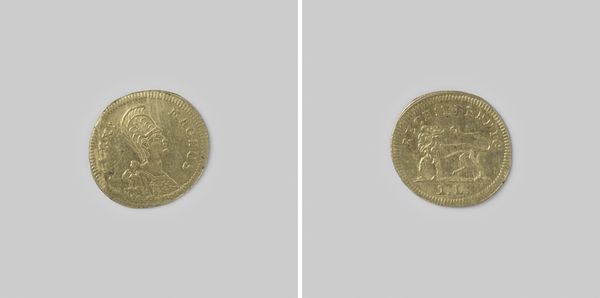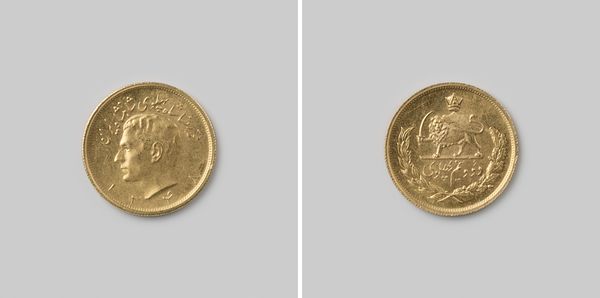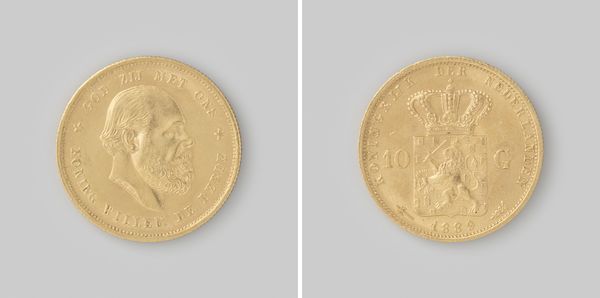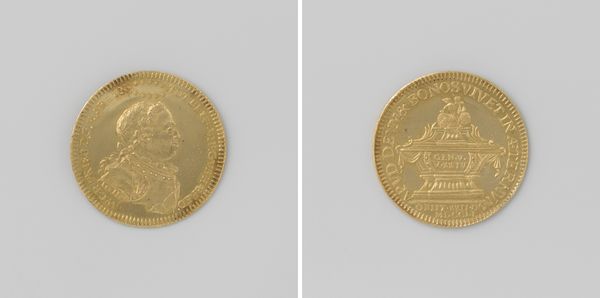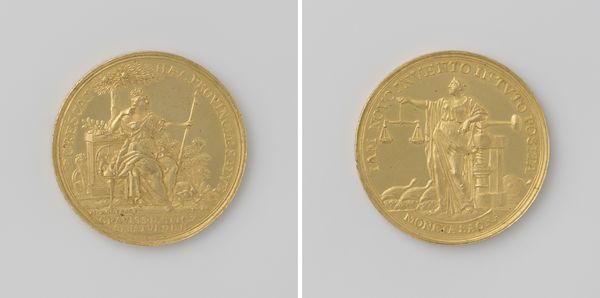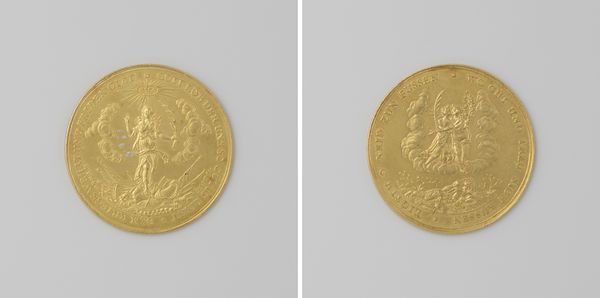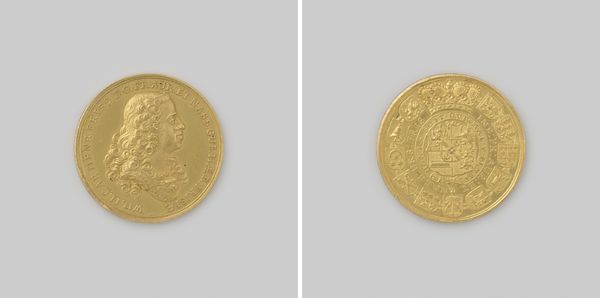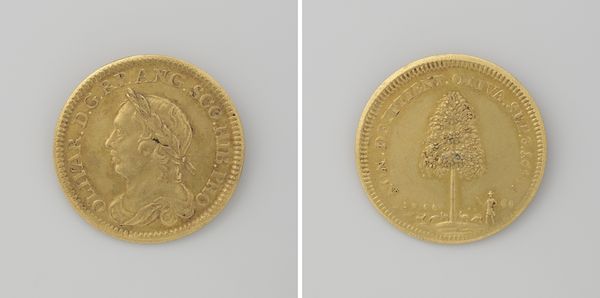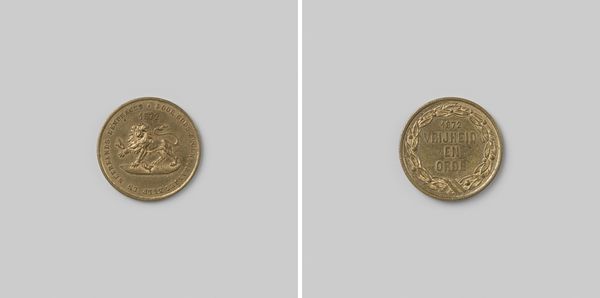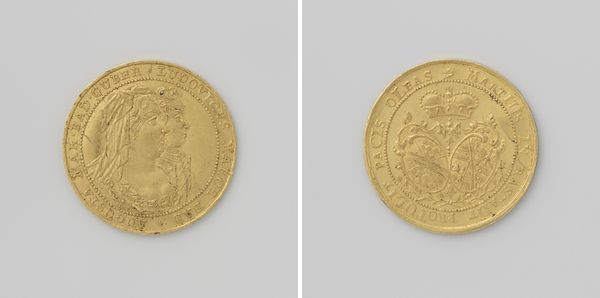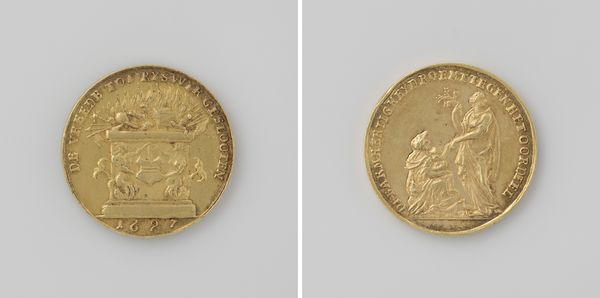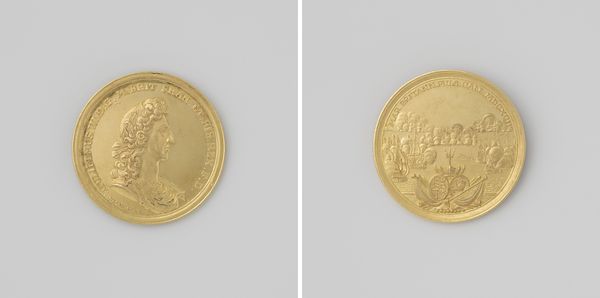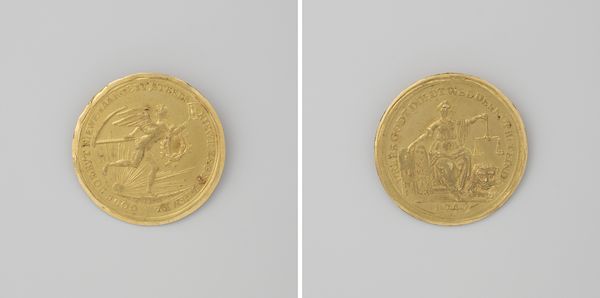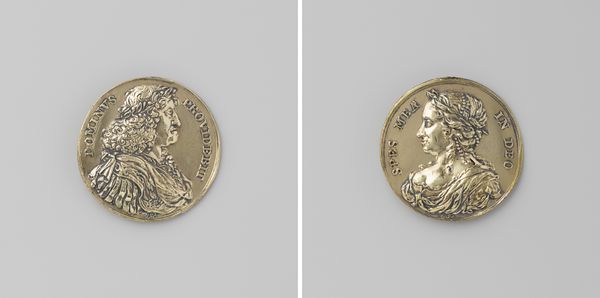
metal, bronze, sculpture, engraving
#
portrait
#
medal
#
baroque
#
metal
#
bronze
#
sculpture
#
history-painting
#
engraving
Dimensions: diameter 2 cm, weight 3.46 gr
Copyright: Rijks Museum: Open Domain
Editor: This is a bronze engraving from 1696 of Lothar Franz van Schonborn, Archbishop of Mainz and Bishop of Bamberg. What immediately strikes me is that it is more than a mere portrait, with the coat of arms suggesting broader political implications. How would you interpret this work? Curator: As a historian, what interests me most is understanding the networks of power and the political narratives these kinds of objects create. Lothar Franz was clearly a figure deeply enmeshed in the religious and political structure of the Holy Roman Empire. Consider how carefully his titles are presented. Why do you think it was important to immortalize him in this way? Editor: I guess these images reinforced his authority, maybe reminded people of his presence and power even beyond his immediate surroundings? Was this image widely distributed? Curator: Absolutely. Images like this played a critical role in projecting power. They were collected, gifted, and used to communicate status within a very specific, hierarchical society. The engraving itself could have been reproduced multiple times. Think about the Baroque style; how does it function in portraying power and legitimacy in art? Editor: The detail, definitely, and the symbols! Every element seems very carefully chosen to reinforce status and project importance. Did his patronage of the arts impact his political role, do you think? Curator: Undoubtedly. Patronage was deeply intertwined with politics and personal ambition. Figures like Lothar Franz used art and architecture to solidify their power and project their influence. It's not just about personal taste; it’s about using culture as a political tool. Editor: I hadn’t considered it that way. So, it’s not just a portrait; it's really a statement about the interplay of religion, power, and artistic representation in the Baroque era. Curator: Precisely. It’s a small object that offers a window into a much larger world. We can consider how imagery operates in the public sphere to establish reputation and create social standing.
Comments
No comments
Be the first to comment and join the conversation on the ultimate creative platform.
